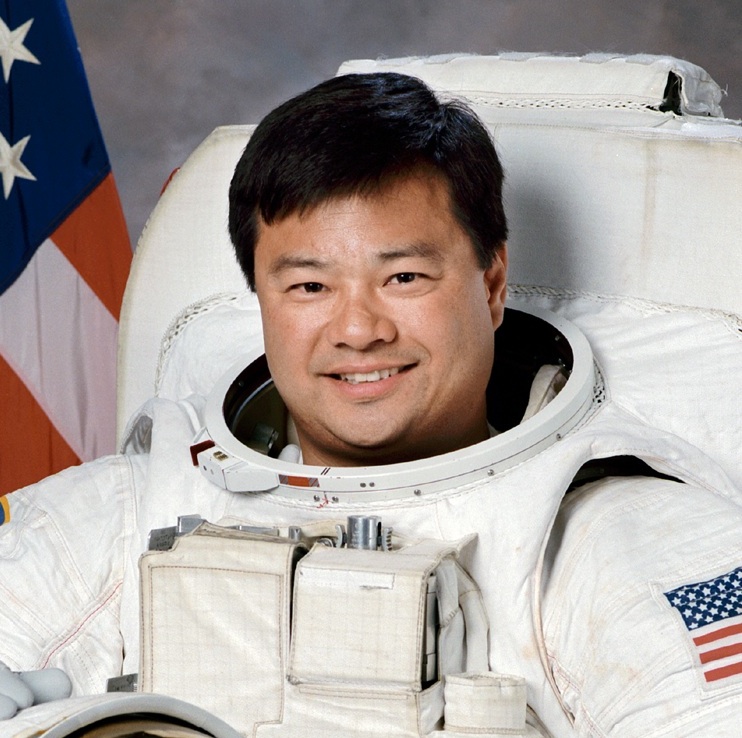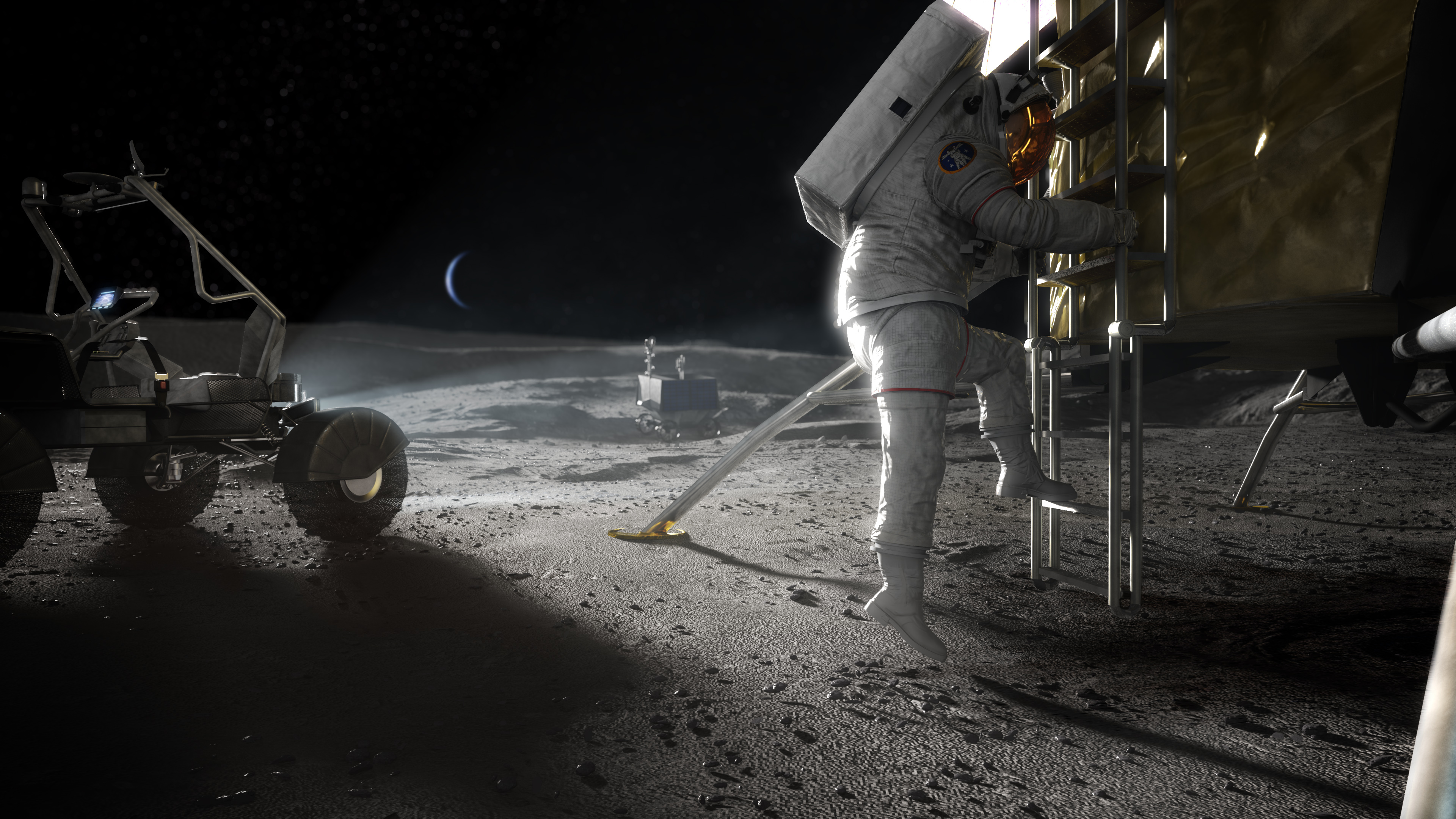
AstroCritic Review: 'First Man' Shows You What Real Astronauts Are Like
I grew up in the 1960s, during the beginning of the space race. The first astronauts were my heroes, and it was the Apollo 11 moon landing that kicked off my dream of becoming an astronaut myself. I can remember like it was yesterday, when I was an 8-year-old, watching the scene unfold in the mission control center as Eagle approached the surface of the moon and then actually landed.
So, it was with great anticipation that I watched "First Man," the new film about the first person on the moon, Neil Armstrong. I should point out, in full disclosure, that I am an engineer. I have three degrees in chemical engineering, and I worked in industry as well as at the Lawrence Livermore National Laboratory prior to being selected by NASA as an astronaut. I personally met Armstrong very briefly once, in the halls of the astronaut office, when he came to visit after going through an annual physical examination.
As an engineer, I like technical movies but try not to cringe too much at technical inaccuracies. But "First Man" is anything but a technical movie. It is not too cringe-worthy either. (The launch scenes are much more violent and dramatic than the real deal, though. No, you can't hear yourself breathing in a spacesuit, because the fan blowing oxygen over your face is too loud.) But the movie is not about that technical stuff. [Astronauts Reflect on Apollo 11 Legacy in 'First Man' IMAX Featurette]
I loved this film. Judged against all accounts of Armstrong's life, lead actor Ryan Gosling gave a believable account of the man and hero. The film showed that astronauts are human.
This really struck a chord with me. We astronauts have problems, just like everyone else. We have issues in our personal relationships. We don't necessarily know how to communicate with our spouses, children or other family members. We have deep friendships with some of our peers and experience friction with others. Some of these good friends and colleagues die in the line of duty or for other reasons.
Astronauts suffer personal tragedies and sadness. We love. We hurt. But we are nothing if not competent. We rise to the occasion and execute, and we do our damn jobs — well. We are operational to the core.
The new film is not a documentary, although it is pretty much historically correct. This is not your typical "nerd" space movie, so don't go if that's all you want to see. But if you want a little insight into what it's like to be an astronaut, from the human side, this film will satisfy, giving you an interesting glimpse into a piece of our world.
Get the Space.com Newsletter
Breaking space news, the latest updates on rocket launches, skywatching events and more!
RATING: 4.5 out of 5 stars.
Dr. Leroy Chiao is the CEO and co-founder of OneOrbit LLC, a motivational, training and education company. He served as a NASA astronaut from 1990 to 2005 and flew four missions into space aboard three space shuttles and once as the co-pilot of a Russian Soyuz spacecraft headed to the International Space Station. After that flight, he served as the commander of Expedition 10 at the station, a six-and-a-half-month mission. Dr. Chiao has performed six spacewalks, in both U.S. and Russian spacesuits, and has logged 229 days in space. Follow us on Twitter @Spacedotcom and on Facebook. Original article on Space.com.
Join our Space Forums to keep talking space on the latest missions, night sky and more! And if you have a news tip, correction or comment, let us know at: community@space.com.
Leroy Chiao is a former NASA astronaut and International Space Station (ISS) commander. Chiao holds appointments at Rice University and the Baylor College of Medicine. Chiao has worked extensively in both government and commercial space programs, and has held leadership positions in commercial ventures and NASA. Chiao is a fellow of the Explorers Club, and a member of the International Academy of Astronautics and the Committee of 100. Chiao also serves in various capacities to further space education. In his 15 years with NASA, Chiao logged more than 229 days in space, more than 36 hours spent in Extra-Vehicular Activity (spacewalks). From June to September 2009, he served as a member of the White House appointed Review of U.S. Human Spaceflight Plans Committee, and currently serves on the NASA Advisory Council. Chiao studied chemical engineering at the University of California, Berkeley, earning a Bachelor of Science degree in 1983. He continued his studies at the University of California at Santa Barbara, earning his Master of Science and Doctor of Philosophy degrees in 1985 and 1987. Prior to joining NASA in 1990, he worked as a research engineer at Hexcel Corp. and then at the U.S. Department of Energy's Lawrence Livermore National Lab. Dr. Chiao left NASA in December, 2005 following a 15-year career with the agency. Chiao studied chemical engineering at the University of California, Berkeley, earning a Bachelor of Science degree in 1983. He continued his studies at the University of California at Santa Barbara, earning his Master of Science and Doctor of Philosophy degrees in 1985 and 1987. Prior to joining NASA in 1990, he worked as a research engineer at Hexcel Corp. and then at the U.S. Department of Energy's Lawrence Livermore National Lab.

